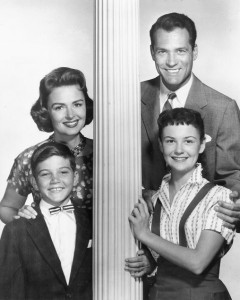On Wednesday, May 22, Pope Francis called on Catholics and non-Catholics to build a “culture of encounter,” in which members of the opposing camps “meet one another doing good.” Apparently stealing a page from Fr. Z, he addressed some of his remarks to a caviling, composite EveryCatholic:
The Lord created us in His image and likeness, and we are the image of the Lord, and He does good and all of us have this commandment at heart: do good and do not do evil. All of us. ‘But, Father, this is not Catholic! He cannot do good.’ Yes, he can. He must. Not can: must! Because he has this commandment within him…The Lord has redeemed all of us, all of us, with the Blood of Christ: all of us, not just Catholics. Everyone! “Father, the atheists?” Even the atheists. Everyone! And this Blood makes us children of God of the first class! We are created children in the likeness of God and the Blood of Christ has redeemed us all! And we all have a duty to do good.
That’s what Francis said. So far, much of the commentary seems aimed at clarifying what he didn’t say. Here on Patheos, Fr. Dwight Longenecker reassures anxious readers that Francis did not preach salvation through works alone. A Facebook friend posted this Catholic Thing piece, where David G. Bonagura, Jr. condemns the “Heresy of Good Personism,” a “pernicious shibboleth” qualifying everyone but a convicted felon as “a good person for whom St. Peter will happily open the pearly gates when his time comes.” Bonagura’s piece is a week old, but the fact that my friend posted it yesterday tells me he meant it to be read as a caveat against an over-generous interpretation of Francis’ words.
There are clear reasons why Francis’ actual vision might strike observers as less than compelling. For one thing, he rolled it out in a homily during a weekday Mass at the Domus Sanctae Martae; it hardly counts as a binding magisterial pronouncement. On the details of how this culture of encounter is supposed to evolve, the pope came up short. Most important of all, I think, is the fact that, where the concerns of today’s American Church are concerned, none of it seems very relevant.
If you define a culture of encounter as a search for common ground, then the Church, by the lights of its own leadership, has been participating in one for decades. (George Weigel gives a good overview of the inner-city renewal projects co-signed by the Bishops’ Conference under Cardinal Bernardin’s leadership.) What it got in return was nuns on the bus, Taoiseach Kenny at Boston College, and Andrew Cuomo in Albany. It was an encounter in the way a jailhouse rape is an encounter. Apparently in recognition of these concerns, Pope-Emeritus Benedict issued “De Caritate Ministranda,” a motu proprio requiring that Catholic charities be “managed in conformity with the demands of the Church’s teaching,” lest they become “just another organized form of social assistance.”
There’s also the fact that many of the issues most vital to Church teaching remain very much in political play. So far, 12 states recognize same-sex marriage, whereas 29 states ban it either by statute or constitutional amendment. Opposition to abortion is at an all-time high. The Obama administration has been getting some encouragingly bad press lately, and…well, it just feels like an awkward time to get all buddy-buddy with the opposition. That’s assuming the opposition wants to get buddy-buddy with us. Judging by the shock and disappointment expressed by gay-rights activists to Senator Leahy, who removed a same-sex partnership recognition clause from the latest immigration reform bill, it doesn’t.
“Morbid symptoms” is what Eugene McCarraher calls this sense of urgency, and the tone — by turns paranoid and nostalgic — it’s driven leading Catholics to adopt. He writes: “These mandarins of despair are correct to fret about the passing of their historical era. The old order they embody may fight on, but its condition is terminal.” Melinda Selmys goes even further. To her way of thinking, Christian dominance over American politics and culture isn’t dying; it’s already dead. She recommends that Catholics follow Elisabeth Kübler-Ross’s stages right down to the last one, acceptance, because “it is only after acceptance that we can rebuild.”
I’m not sure whether either of these two is right. But when and if the Church’s political and cultural irrelevance is formally declared, those Kübler-Ross stages are going to be a bear, boy. I predict a lot of folks are going to tarry in “anger” for a month of Sundays and Holy Days of Obligation. Not that mourning, when and if we ever begin it, is going to go much quicker. If there’s one thing I’ve learned in my six-and-a-half years with the Church, it’s that Catholics never get over anything, ever. We’ve bought up all the riverfront property in Babylon. According to McCarraher, the bishops and Bill Donahue are stuck in the 1950s and their memories of Mom’s apple pie. The LCRW’s gearshift is stuck in V2. SSPX types are still dipping their hankies in the blood of the Bourbons.
Am I any exception? As St. Paul would say, by no means. In my private moments, I still sigh over the parish I attended till 2010. This despite the fact that, while I was actually there, all I did was bitch about the scarcity of women who’d consider dating a 35-year-old.
It may only be Millennials, or whatever demographers are calling their kids, who can get this culture of encounter thing going in earnest. Unburdened by memories of the America the bishops are fighting to preserve, they’ll be able to see unbelievers as fellow “children of God of the first class,” not as the hosts of Midian. Let’s hope they come of age quickly. No encounter that begins with “We — actually, the Protestants, but same difference — used to run this place until you showed up” can possibly end well.











